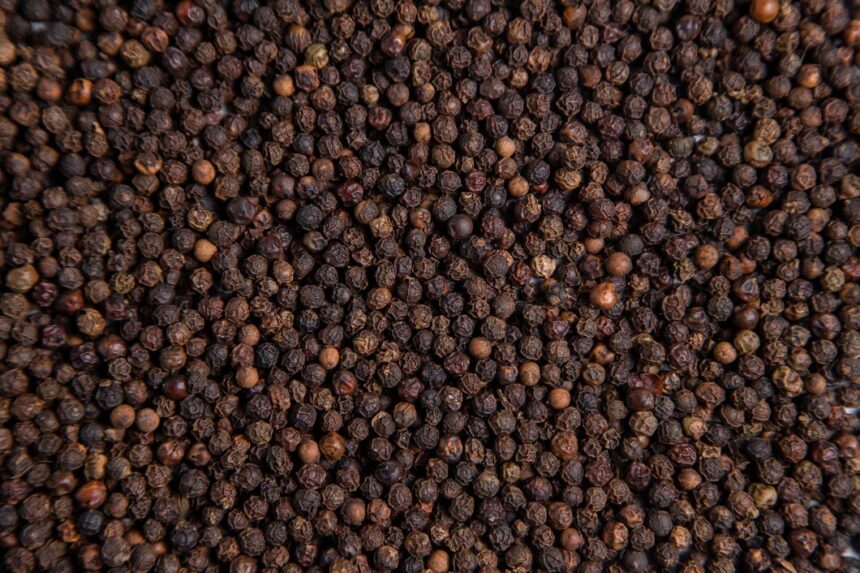Black pepper, known as the “king of spices,” holds significant value in culinary traditions worldwide for its bold flavor and aromatic qualities. In South Africa, the cultivation of black pepper presents an opportunity for agricultural producers to tap into a lucrative market while contributing to the country’s spice industry. To unlock the full potential of black pepper cultivation, farmers can employ various techniques to enhance both the quality and yield of their crops. Here, we explore several strategies for optimizing black pepper production in the South African context:
1. Selecting Suitable Varieties:
Choosing the right black pepper varieties that are well-suited to the local climate and soil conditions is crucial for success. Varieties with high disease resistance, yield potential, and desirable flavor profiles should be selected to ensure optimal performance in South African growing regions.
2. Soil Preparation and Management:
Prior to planting, thorough soil preparation is essential for creating a favorable growing environment for black pepper. Soil testing helps determine nutrient deficiencies and pH levels, allowing farmers to tailor soil amendments and fertilization practices accordingly. Proper soil drainage and organic matter addition also contribute to improved soil structure and fertility, promoting healthy root development and overall plant vigor.
3. Optimal Planting Practices:
Black pepper is typically propagated through cuttings or seedlings, which should be planted in well-prepared soil beds or raised beds with adequate spacing to facilitate plant growth and airflow. Planting during the optimal season and providing appropriate support structures, such as trellises or stakes, help ensure proper vine development and canopy management throughout the growing season.
4. Efficient Irrigation Management:
Effective irrigation scheduling is critical for black pepper cultivation, especially in regions with irregular rainfall patterns or prolonged dry spells. Drip irrigation or micro-sprinkler systems deliver water directly to the plant’s root zone, minimizing water waste and ensuring consistent moisture levels essential for healthy growth and flowering.
5. Pruning and Canopy Management:
Regular pruning of black pepper vines helps maintain optimal plant architecture, promote airflow, and prevent overcrowding, which can reduce disease incidence and improve fruit development. Canopy management techniques such as topping, thinning, and training vines allow for better light penetration and fruit set, leading to higher yields and quality.
6. Integrated Pest and Disease Management:
Implementing integrated pest and disease management (IPM) strategies helps minimize the impact of common pests and diseases on black pepper crops. Monitoring for signs of infestation, employing cultural practices such as crop rotation and sanitation, and using biological control agents or low-toxicity pesticides when necessary contribute to sustainable pest management while preserving crop quality.
7. Fertilization and Nutrient Management:
Providing black pepper plants with balanced nutrition through appropriate fertilization practices is essential for optimal growth, flowering, and fruiting. Soil and tissue testing help determine nutrient requirements, allowing farmers to apply organic or synthetic fertilizers in precise amounts and ratios to meet plant needs and maximize yield potential.
8. Harvesting and Post-Harvest Handling:
Timely harvesting of black pepper berries at the correct stage of ripeness ensures optimal flavor and aroma development. Proper post-harvest handling, including washing, drying, and packaging, helps preserve the quality and shelf life of the final product, readying it for market distribution.
9. Continuous Monitoring and Adaptation:
Regular monitoring of crop health, growth, and environmental conditions allows farmers to detect any issues early and make timely adjustments to their management practices. Keeping abreast of new research, technologies, and best practices in black pepper cultivation ensures ongoing improvement and adaptation to changing conditions.
10. Collaboration and Knowledge Sharing:
Collaborating with agricultural experts, research institutions, and fellow farmers facilitates knowledge exchange and innovation in black pepper production. Participating in training programs, field demonstrations, and industry events fosters a culture of learning and continuous improvement, benefiting the entire black pepper value chain in South Africa.
By implementing these techniques and embracing innovation and collaboration, South African farmers can enhance both the quality and yield of black pepper crops, unlocking the full potential of this valuable spice and contributing to the growth and sustainability of the country’s agricultural sector.
Join 'Farmers Mag' WhatsApp Channel
Get the latest Farming news and tips delivered straight to your WhatsApp
CLICK HERE TO JOIN






